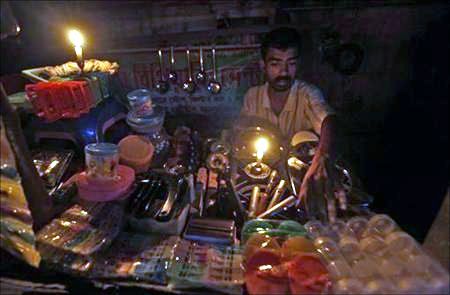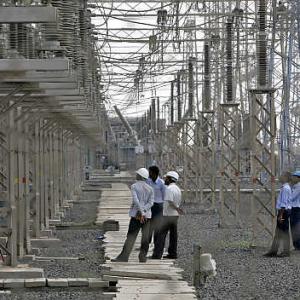 If the power plants are reporting low coal stocks with them, it is largely because they have improved their power generation to meet higher demand.
If the power plants are reporting low coal stocks with them, it is largely because they have improved their power generation to meet higher demand.
The power and coal sector is in the throes of a crisis. Here are some recent developments:
The Union Cabinet is set to meet to consider disinvestment in the state-controlled coal-mining monopoly, Coal India Limited or CIL; disinvestment is necessary in order to meet the government's fiscal deficit targets for the financial year.
The likelihood of disinvestment has caused some workers of CIL to threaten a "work-to-rule" strike later this month, in which only a limited number of miners will attend work.
Meanwhile, more than half of India's thermal power plants have stocks only enough to last them for a week of generation. Many power producers blame this state of affairs on CIL.
The Supreme Court is looking into the fate of 200-odd coal mine "blocks" allocated to various companies over the past decade or so; CIL's unions want these handed over to the company.
Also, the government is trying to minimise the environmental restrictions on the expansion of coal mines; but there is pushback from the Union environment ministry, which has said CIL is "not at all serious" about the environmental impact of coal mining.
Apparently many applications for environmental clearances are submitted with incomplete information.
All this is a backdrop to a severe power crisis - once again, India's power generation cannot keep up with peak demand. With the cyclical upturn in manufacturing apparently underway, it is likely that the power deficit will widen.
These are major management issues. In particular, the relationship between CIL, coal production and power generation is exactly why a single minister, Piyush Goyal, was assigned both the coal and the power portfolios.
A full-blown coal and power management crisis so soon into his tenure is not an encouraging sign. Mr Goyal has claimed that delays in environmental clearances are part of the problem; but his ministry has also indicated that it agrees with power producers that coal supply to coal-fired power plants is simply not enough.
Mr Goyal told a meeting of private-sector power producers weeks ago that he would sort out coal supply problems. NTPC, the public-sector thermal power producer, has also indicated that coal supply is a problem.
But, as Business Standard has reported, Coal India can hardly be blamed. CIL has made commitments, through fuel supply agreements, to power plants of specific amounts: 65 per cent of the total requirement of new plants, and 90 per cent of the requirements of old plants.
It appears that these commitments are being met. If the power plants are reporting low coal stocks with them, it is largely because they have improved their power generation to meet higher demand.
And this has led to higher use of coal by the power plants. In other words, the problem appears to be that plants are not importing the coal required to make up the shortfall. But, of course, imported coal is more expensive than most Indian coal.
It is hard to avoid coming to the conclusion that many power plants, including private-sector power plants, are simply playing hardball to ensure that that their fuel requirements are fulfilled through local, cheaper coal and not through the coal imports that they are required to do.
Mr Goyal, when meeting private sector power producers in July, should have asked them what plans they had to import coal to make up their shortfall instead of promising coal from CIL.
It is to be noted that his ministry has also urged CIL to minimise e-auction of coal - which is a regressive step. If the government wants to unlock CIL's value through disinvestment, it must learn to respect CIL's needs.










